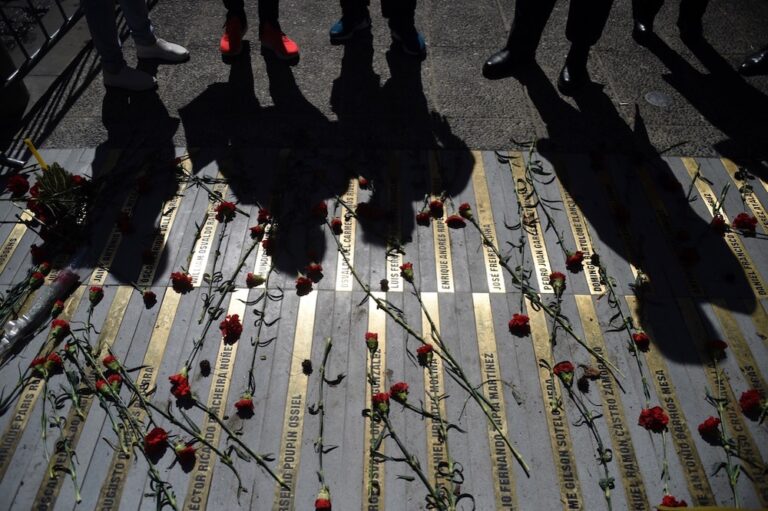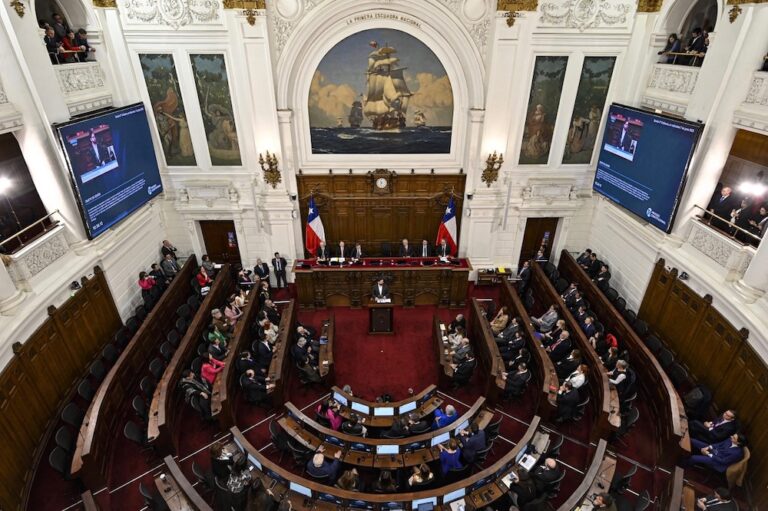(WAN/IFEX) – The following is a 14 June 2000 WAN press release: Paris, 14 June 2000 For immediate release Chile Urged to Encourage Press Freedom The World Association of Newspapers has urged Chilean President Ricardo Lagos to resubmit a new Press Law that was rejected by the country’s legislature, apparently because it would remove politicians’ […]
(WAN/IFEX) – The following is a 14 June 2000 WAN press release:
Paris, 14 June 2000
For immediate release
Chile Urged to Encourage Press Freedom
The World Association of Newspapers has urged Chilean President Ricardo Lagos to resubmit a new Press Law that was rejected by the country’s legislature, apparently because it would remove politicians’ protections against libel charges.
Publishers attending the Annual General Meeting of WAN, meeting in Rio de Janeiro, Brazil, during the World Newspaper Congress and World Editors Forum (11-14 June), approved a resolution which said:
Freedom of expression in Chile is currently compromised by a variety of factors. Foremost among these are constraints on access to sources of information, in spite of the recent approval of the Administrative Probity Act that theoretically assures such access whilst in practice it assigns this decision to the respective administrative authority. Judges may withhold information on cases being tried before them. A media outlet which is accused of libel by a senior politician is accused of a crime against state security and subject to fast, rigorous investigation by state bodies. The press may still be accused of “special” crimes and military judges may still intervene in crimes of opinion.
A Commission made up of newspaper representatives, the Journalists’ Association, Journalism Schools and government employees drafted an alternative Press Law in 1993. The Lower House and the Senate discussed and modified this Press Law over a period of seven years. In 1999, a Joint Committee of Congressmen and Senators was set up to study provisions on which no agreement had been reached and a final report was agreed in May 2000. Its recommendations introduced some significant advances in: the right to rectification and clarification, responsibilities allocated to the Commission on Crimes in the exercise of Freedom of Information and Opinion, and the elimination of the privileges granted to authorities by the State Security Act.
The Senate approved the Report of the Joint Committee by 38 votes and one abstention; the Lower House rejected the Report by 58 votes to 23. WAN is concerned that this rejection on the part of the Lower House may be a reaction against the loss of privileges offering politicians protection against charges of libel.
WAN urges the President of Chile, Ricardo Lagos, to use his Constitutional veto to call for a resubmission of the Draft Bill to the Lower House and to encourage the reconsideration of these important legal reforms in order to encourage greater freedom of expression in Chile.”
More than 1,400 newspaper publishers, editors and other executives attended the World Newspaper Congress and the World Editors Forum, the first WAN meetings of the world’s press to be held in Latin America.
The Paris-based WAN, the global organisation for the newspaper industry, defends and promotes press freedom world-wide. It represents 17,000 newspapers; its membership includes 65 national newspaper associations, individual newspaper executives in 93 countries, 17 news agencies and seven regional and world-wide press groups.


